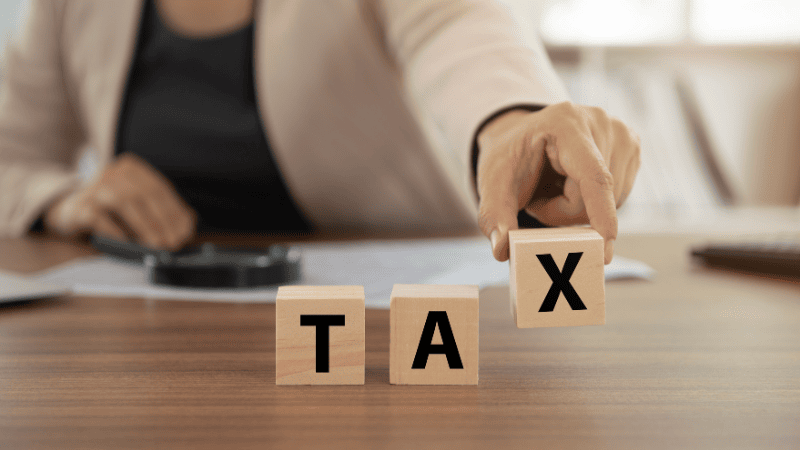Get Expert Investment Financing
- Matched with investor-friendly lenders
- Fast pre-approvals-no W2s required
- Financing options fro rentals, BRRRR, STRs
- Scale your portfolio with confidence
Educational Content | Not Financial Advice | Connect with Licensed Professionals
Self-employed? You’re not alone—and you’re certainly not out of luck when it comes to financing a home or investment property. While traditional lenders often require years of W-2s and tax returns, there are flexible, investor-friendly mortgage options that focus on what you actually earn and own, not just what shows up on your tax return.
In this guide, we’ll break down your top “no tax return” mortgage options, how they work, who qualifies, and how you can use them to buy a home or scale your real estate portfolio faster.
Most banks and mortgage lenders rely on tax returns and W-2 income to verify your ability to repay a loan. But if you’re self-employed, you likely deduct business expenses—legally reducing your taxable income.
The problem? Lower taxable income means lower loan approval odds, even if your business is thriving.
That’s where non-QM loans (non-qualified mortgages) come in. These mortgage programs look beyond your tax returns and focus on real-world cash flow.
Best For: Self-employed individuals, freelancers, and small business owners.
How it Works:
Lenders review your last 12–24 months of business or personal bank statements to assess average monthly deposits. This becomes the basis for your qualifying income.
What You’ll Need:
Pros:
No tax returns or W-2s required
Common-sense underwriting
Can be used for primary homes or investment properties
Related Read: Bank Statement Loans for Self-Employed Real Estate Investors
Best For: Real estate investors whose rental income can cover the mortgage.
How it Works:
Instead of your personal income, lenders qualify you based on the income your property generates. If the rent covers the mortgage (usually a DSCR of 1.0 or higher), you qualify.
What You’ll Need:
No income documentation is required. That means no tax returns, W-2s, or employment verification.
Pros:
Perfect for LLCs and investors scaling portfolios
Works for short-term rentals (Airbnb)
Fast closings, minimal paperwork
Related Guides:
Best For: High-net-worth individuals with significant liquid or investment assets.
How it Works:
Instead of income, lenders use your total asset balance (stocks, savings, retirement accounts) to calculate a monthly “income equivalent.” This can help you qualify even without steady paychecks.
What You’ll Need:
Pros:
No job or income required
Ideal for retirees or financially independent borrowers
Related Read: Asset Depletion Mortgage: An Innovative Financing Option
Rebecca is a freelance UX designer earning $180K annually. But thanks to deductions, her tax return showed just $40K. Banks kept declining her.
Instead, she used a bank statement loan showing $15K/month in deposits over the last 12 months. She got approved for a $500K mortgage and purchased a duplex—living in one unit and renting the other.
Three years later, she refinanced with a DSCR loan using the rental income alone—and used a HELOC to buy her next property.
You don’t need a traditional job—or traditional documentation—to start or scale your real estate journey. The key is knowing which financing tools work for your situation.
Ready to explore your no-income-verification options?
Submit your loan scenario and get matched with a lender
Yes. Bank statement loans, DSCR loans, and asset depletion mortgages all allow you to qualify without providing tax returns.
Yes! Many DSCR lenders will accept short-term rental income using platforms like AirDNA to estimate market rent. Learn more: DSCR Loans for Short-Term Rental Properties
Most no-tax-return loans require 20–25% down. Some premium bank statement lenders may offer as low as 10–15% with strong credit.
Yes, especially with DSCR loans. These are business-purpose loans that support portfolio scalability.
Whether you’re self-employed, a full-time investor, or just starting out—your financial future shouldn’t be limited by traditional paperwork.
Disclaimer: This article is for educational purposes only and does not constitute financial or legal advice. Always consult with a licensed mortgage advisor or CPA for your specific situation.
This article is for educational purposes only and does not constitute financial, legal, or investment advice. Mortgage rates, terms, and requirements vary by lender and individual circumstances. Always consult with qualified, licensed mortgage professionals before making financial decisions. REInvestorGuide.com may receive compensation from featured lenders and service providers.
Our advise is based on experience in the mortgage industry and we are dedicated to helping you achieve your goal of owning a home. We may receive compensation from partner banks when you view mortgage rates listed on our website.


